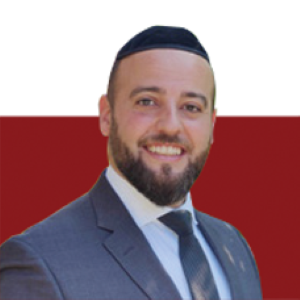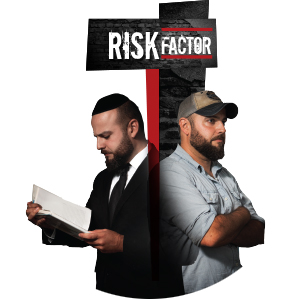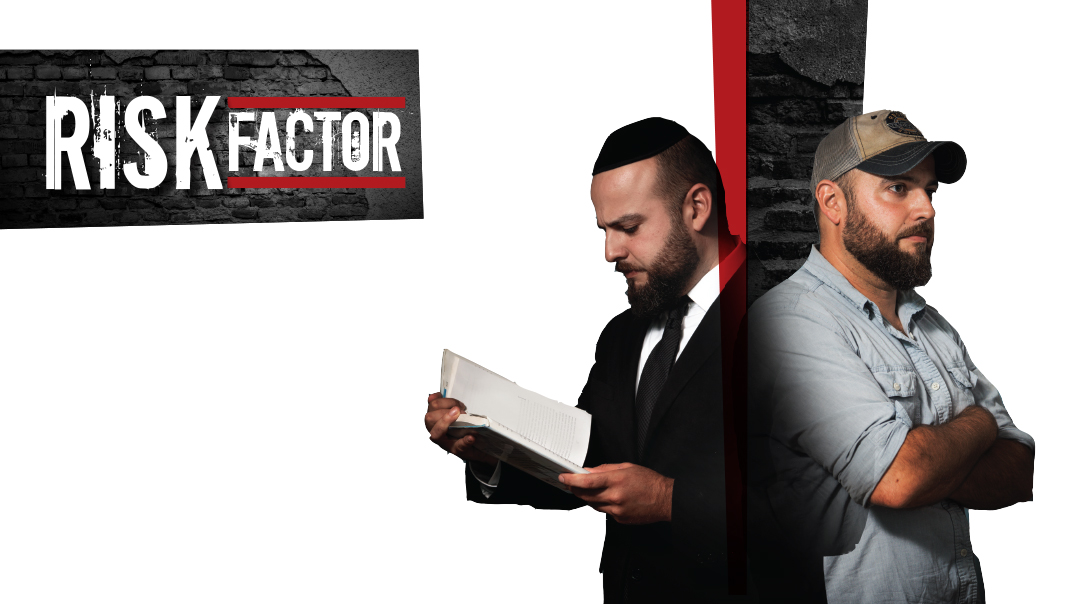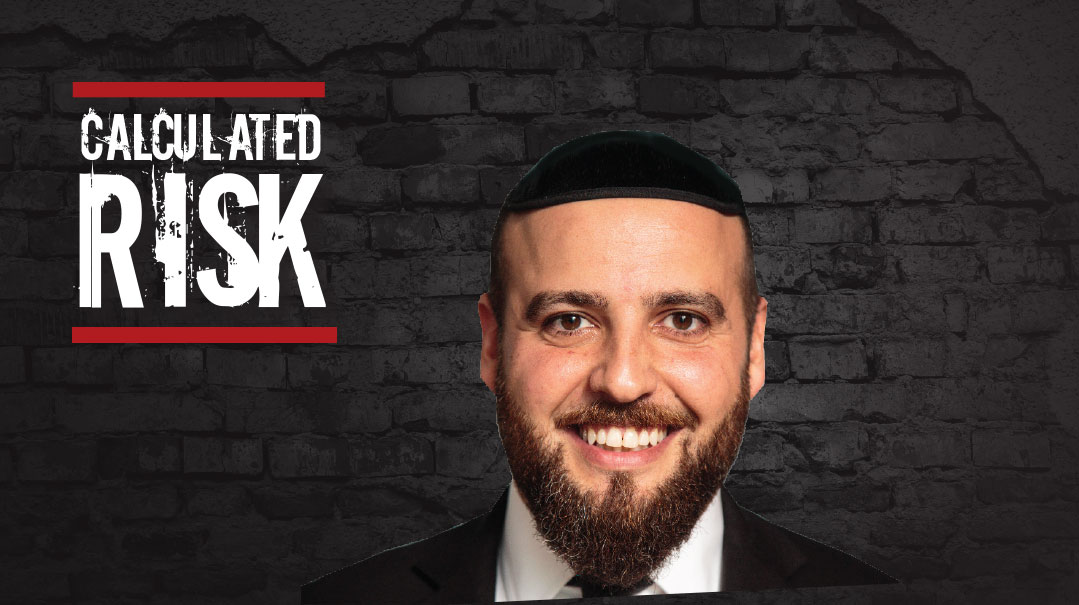When We Walk the Walk

I knew he’d been in trouble, but that he’d walked into our program with such a deep-seated mistrust was shocking to me.
I

t was 2 a.m. on the last Friday night of the year at the Yesod program. The seudah had lasted a while, and the oneg following it had lasted even longer, with some 60 guys in and out throughout the night. It had finally wound down, and as I wished the last student a Good Shabbos, I turned around to survey the damage. My apartment looked like it had been ransacked, crowded with tables and chairs and the debris of the seudah and oneg all over the place. Then I noticed the one guy who had stayed to clean up. Mendel. Of course it was Mendel.
I watched Mendel rolling up a plastic tablecloth and remembered the day I had first met him, nine months earlier. He had stepped out of the cab, straight from the airport, and the first thing I had noticed was that he wasn’t wearing shoes. When I shook his hand, I could smell the marijuana on his clothes. I looked behind him. No luggage.
“Um, Mendel, did you bring anything with you?”
He smiled, the shining smile that would become his trademark. “Nah, I was running late, I totally forgot my bags.”
“And your shoes?” I couldn’t help asking.
“I was running really late,” he said. “Hey, can I borrow your phone? I just want to let my mom know I made my flight.”
If you had told me then what Mendel would look like nine months from then I wouldn’t have believed it, but across from me stood a mature, put-together young man who had proven over and over that he is committed to his own growth. He was a role model for every guy in the program. Most of all, he had an incredible kesher with each of the rebbeim (and he was wearing shoes). Mendel had spoken at the oneg, sharing his past struggles, the triumphs of the year, and his dreams for the future.
“You spoke awesome, Mendel,” I told him, joining the cleanup. “I cried and laughed; it was great.”
“I appreciated everything you said about me in your intro,” he said, “especially about me having a connection with all the rabbis, not just one or two.”
“I meant it. Most guys find one or two rebbeim they connect with. It’s not common for someone to have that kind of connection with every rebbi.”
“Yeah, I also didn’t expect that to happen. I didn’t think I was even going to make it through the year.”
I was surprised. “Really?”
“Yeah,” he said. “You know, my whole life I always felt like I was being pushed into oncoming traffic. You’ve met my parents…. Other adults I trusted turned on me…. Even my friends would blame everything on me whenever we got in trouble. I didn’t have an older brother or anyone to protect me.” He paused. “It made me not want to get close to anyone.”
This was information I didn’t know. I knew he’d been in trouble, but that he’d walked into our program with such a deep-seated mistrust was shocking to me.
It wasn’t the attitude itself that shocked me. Lots of our guys walk in believing everyone is the enemy. They don’t trust anyone, certainly not rabbis. When a guy comes to us with that mindset, it takes an immense amount of patience and love to get through to him — after all, he doesn’t trust you.
But I was shocked because Mendel had never seemed that way. From the very beginning he had loved the classes, had grabbed the opportunity to develop a personal relationship with every one of the rebbeim. That wasn’t the profile of a guy with his guard up.
“That’s a really tough attitude to change so quickly,” I said. “How did you do it?”
Mendel smiled that radiant smile.
“I got shocked out of it on my first day here,” he said. “Do you remember, we went to Gan Sacher to play football and have a barbecue?”
Sure I remembered.
“On the bus on the way there, Rabbi Portowitz came over and introduced himself. He asked if I’m excited about the program and I said I was, but I’d never been away from home for so long. He told me, ‘Mendel, this is your home, we’re your family.’ It was like he set off a thousand alarms in my head: Yeah, sure, another big talker. I couldn’t get away from him fast enough.” He laughed a little at the memory.
“When we got to the park,” he continued, “we hung around at the field. There were people playing there and we were waiting to claim it when they were done. All the rabbis were setting up the food and stuff. When those other people left, we started to walk onto the field, but an Arab guy came over and said he was there first.
“We’d seen him come, we knew he was lying. He was yelling, we were yelling, then I saw the guy turn to me and pull back a fist.” Mendel drew a breath, lost in the memory of that day. “Next thing I knew, this black-and-white blur came flying in and tackled the guy. It was Rabbi Portowitz; he pinned him down. I remember he was yelling, ‘You don’t touch my boys!’ ”
Mendel stopped talking.
“I don’t get it,” I said.
Trauma like Mendel held should have taken a long time to work through. How could one instance of real human connection and sacrifice jar him out of it?
“You have to understand,” Mendel said. “I’d been to a bunch of programs before I came here to Yesod. And before that I’d been in quite a few schools. Lots of people had tried talking to me. Even Rabbi Portowitz had tried talking to me. But it was all words. This was different. This was a rabbi taking on that Arab, getting involved in a fight….”
He added a crumpled napkin to the garbage bag and looked up. “It was the first time in my life that I experienced what it was like to have someone stand up for me.”
(Originally featured in Mishpacha, Issue 791)
Oops! We could not locate your form.



